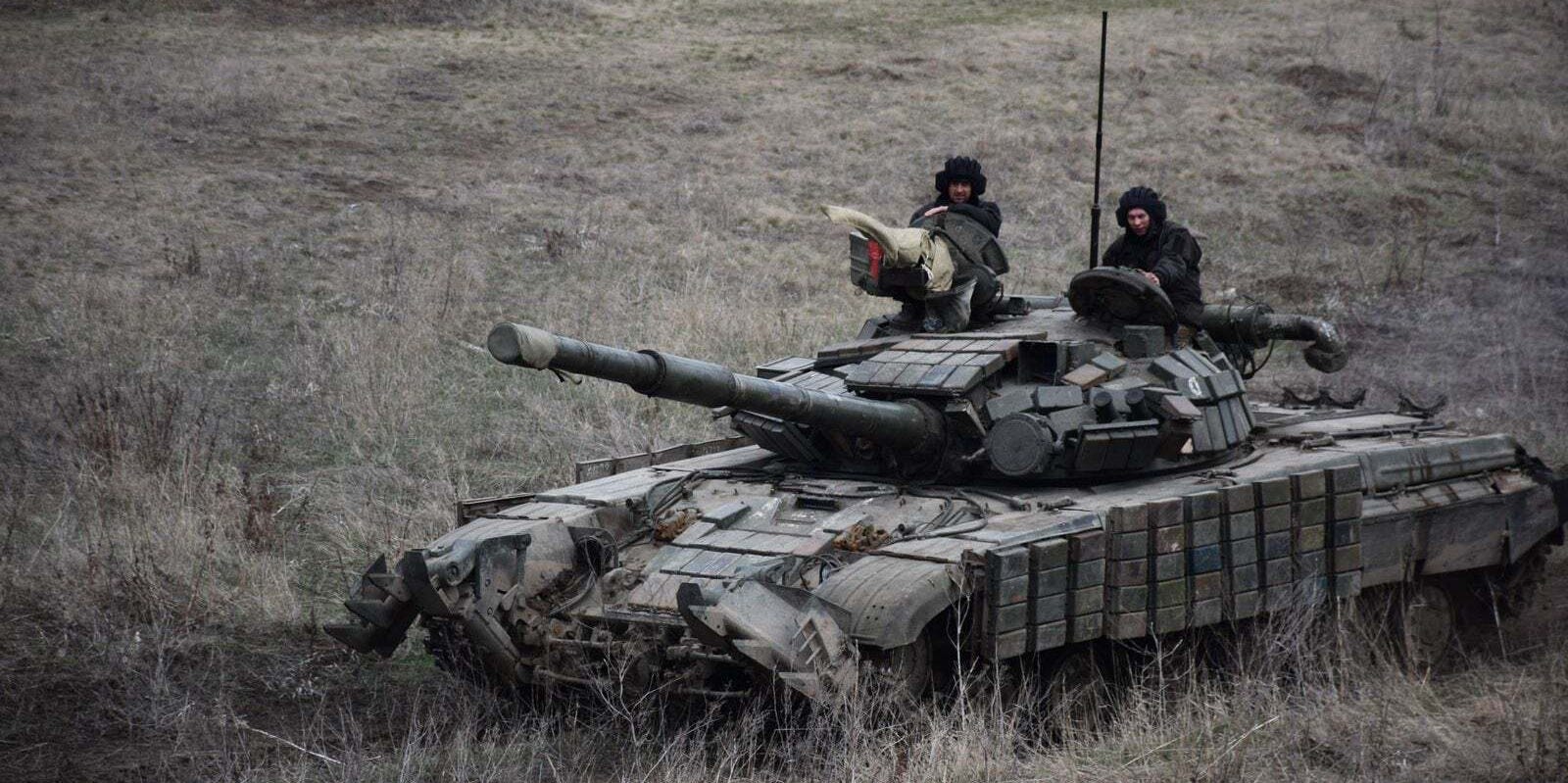
Armed Forces of Ukraine/Anadolu Agency via Getty Images
- Russia's recent military buildup on its border with Ukraine pushed tensions to their highest point in years.
- US defense officials said that Russian force was bigger than the one that massed in 2014, when Russian seized Crimea.
- During that fighting, Ukraine's military was at a low point, but Kyiv has rebuilt its forces to ensure a future conflict is costly for its adversary.
- See more stories on Insider's business page.
In April, Russia conducted a massive military buildup about 100 miles from its border with Ukraine, which increased tensions, stoked fighting between Ukrainian and separatist forces, and worried many that another invasion was imminent.
The buildup included over 100,000 troops, over 1,000 military vehicles, 200 aircraft, and some 60 warships – including vessels from as far away as the Northern Fleet and Caspian Flotilla.
The force was "certainly bigger" than the one that invaded Ukraine in 2014, according to the Pentagon.
The moves, which Russian officials said were routine training exercises, drew warnings from world leaders and pledges of support for Ukraine. By April 22, the Russian military had ordered a pullback, though it instructed its forces to leave behind heavy weaponry for future drills.
It was the closest to region has come to full-fledged fighting in years.
In the past, Ukraine was largely unprepared for war. Today, however, its military is in a much stronger position and is making sure that any future hostilities have a high price for their adversary.
2 decades of decay
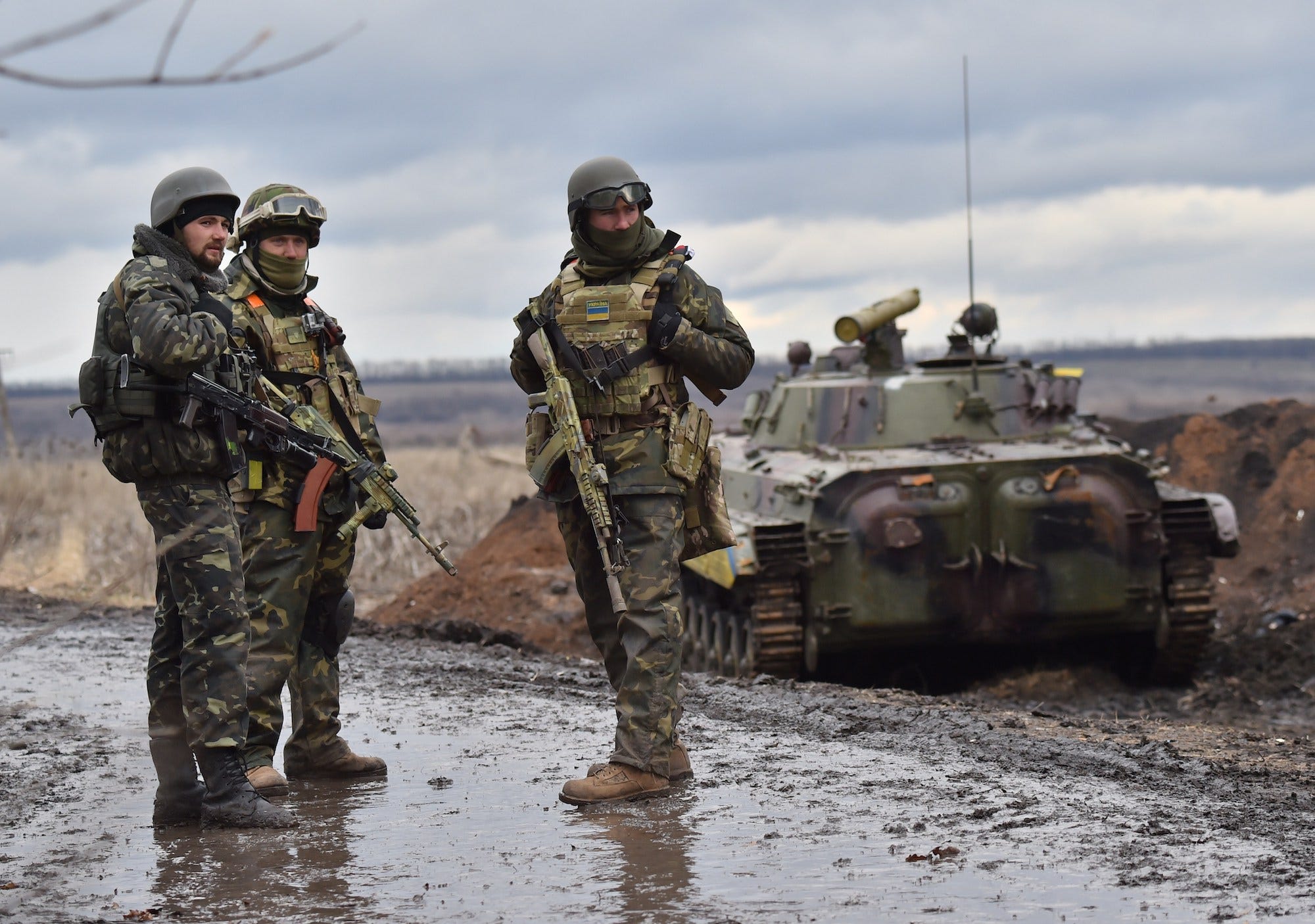
SERGEI SUPINSKY/AFP via Getty Images
Ukraine's military was in a sorry state in 2014, when Russia seized Crimea and backed an invasion of eastern Ukraine.
By 2014, after more than two decades of peace, Ukraine's military had shrunk to just 140,000 troops - only 6,000 of whom were ready for combat. Additionally, much of its high-end equipment, including some of the newest gear produced by its domestic arms industry, was sold to foreign countries.
The annexation of Crimea also had a devastating impact on Ukraine's navy, which Kyiv says lost 75% of its personnel, most of its bases, and two-thirds of its ships - including its only submarine and most of its modern vessels.
As fighting intensified, Ukraine was heavily reliant on civilians to supply frontline soldiers with things like food, fuel, clothing, and communication equipment. Volunteer battalions also played important roles.
When Russia intervened in the conflict in late August 2014, the Ukrainian military was driven back, quickly reversing most of the progress it made in the months before.
Building a 'battle-hardened' force
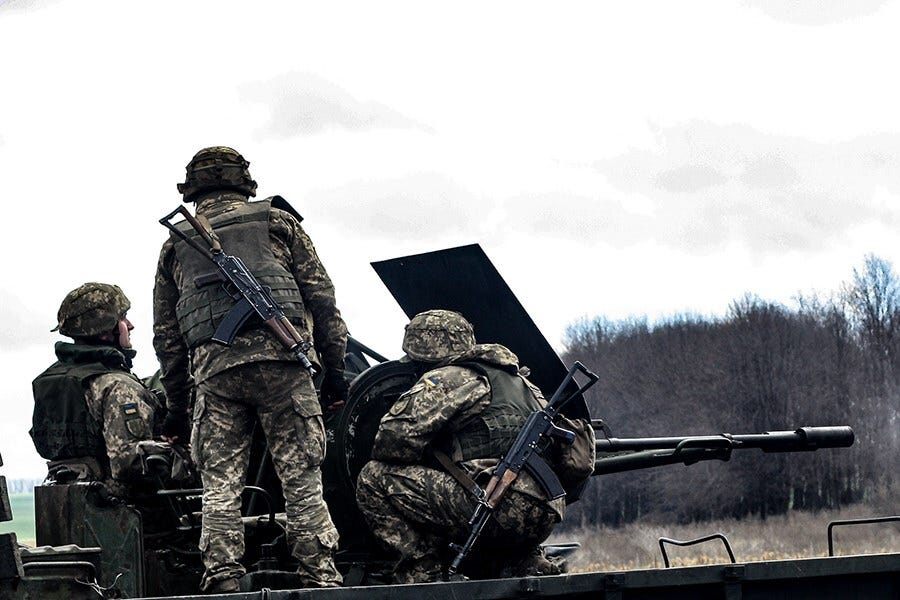
Armed Forces of Ukraine/Handout/Anadolu Agency via Getty Images
Despite the setbacks, Ukraine's military is much larger and much stronger today.
"There's quite a few improvements," Andrew Radin, a political scientist with the RAND Corporation think tank, told Insider.
Radin, who helped write recommendations on security-sector reform for the Ukrainian government, described Ukraine's current force as "a battle-hardened military, both in terms of volunteer personnel ... as well as quite a number of veterans who are still available as reservists."
Ukraine has made progress in adopting NATO standards and practices, and its forces - 255,000 active-duty personnel and 900,000 reservists - train regularly with the US and other NATO militaries.
Ukraine increased its defense budget to 4.1% of GDP in 2020, and much of that money has gone to rearming.
In addition to US-made Javelin anti-tank missiles, the US has supplied Ukraine with armored Humvees, inflatable boats, radios, counterbattery artillery systems, and multiple Island-class patrol boats.
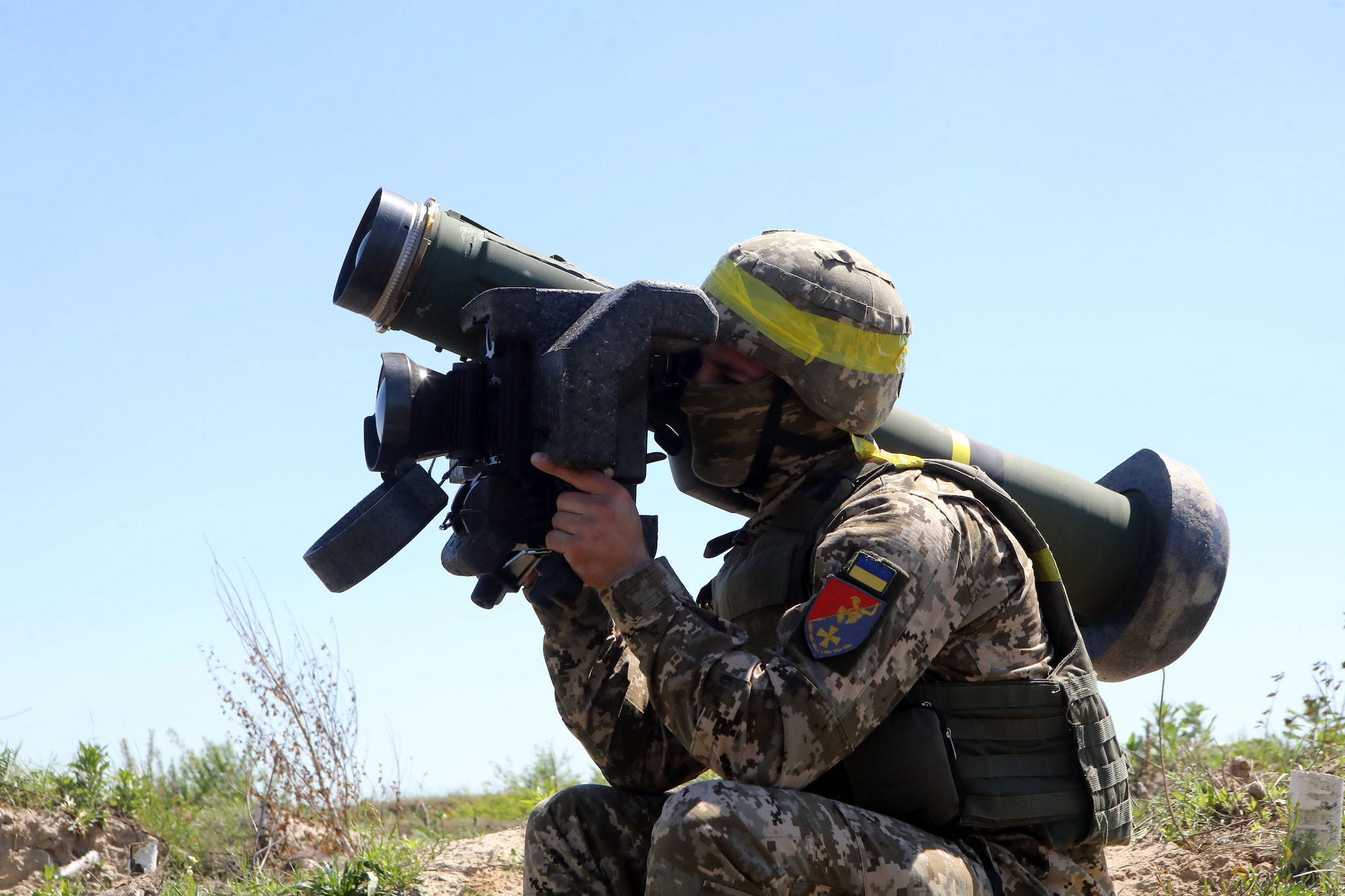
Volodymyr Tarasov/ Ukrinform/Barcroft Media via Getty Images
Ukraine is also acquiring Turkish-made Bayrakter TB2 drones, hoping to buy up to 48 of them. TB2s used by Azerbaijan were extremely effective against Armenian military targets during their brief war late last year.
TB2s have also reportedly been effective against Russian Pantsir-S1 air-defense systems in Libya and Syria. Pantsir-S1s have been spotted in Ukraine, and Russian officials have expressed dismay about TB2 drones operating there.
Ukraine's domestic defense industry is sophisticated and growing. Ukroboronprom, the state-owned defense conglomerate, is producing modern, domestically designed armored personnel carriers like the BTR-3 and BTR-4 for the Ukrainian Army.
A number of programs are set to increase Ukraine's military capability in the future.
Kyiv has signed a deal with Turkey for an unknown number Ada-class corvettes, which can fire anti-ship missiles. Ukraine's navy also hopes to acquire up to 16 new Mark VI patrol boats from the US, at least two of which will be delivered by the end of 2022.
Raising the costs for Russia
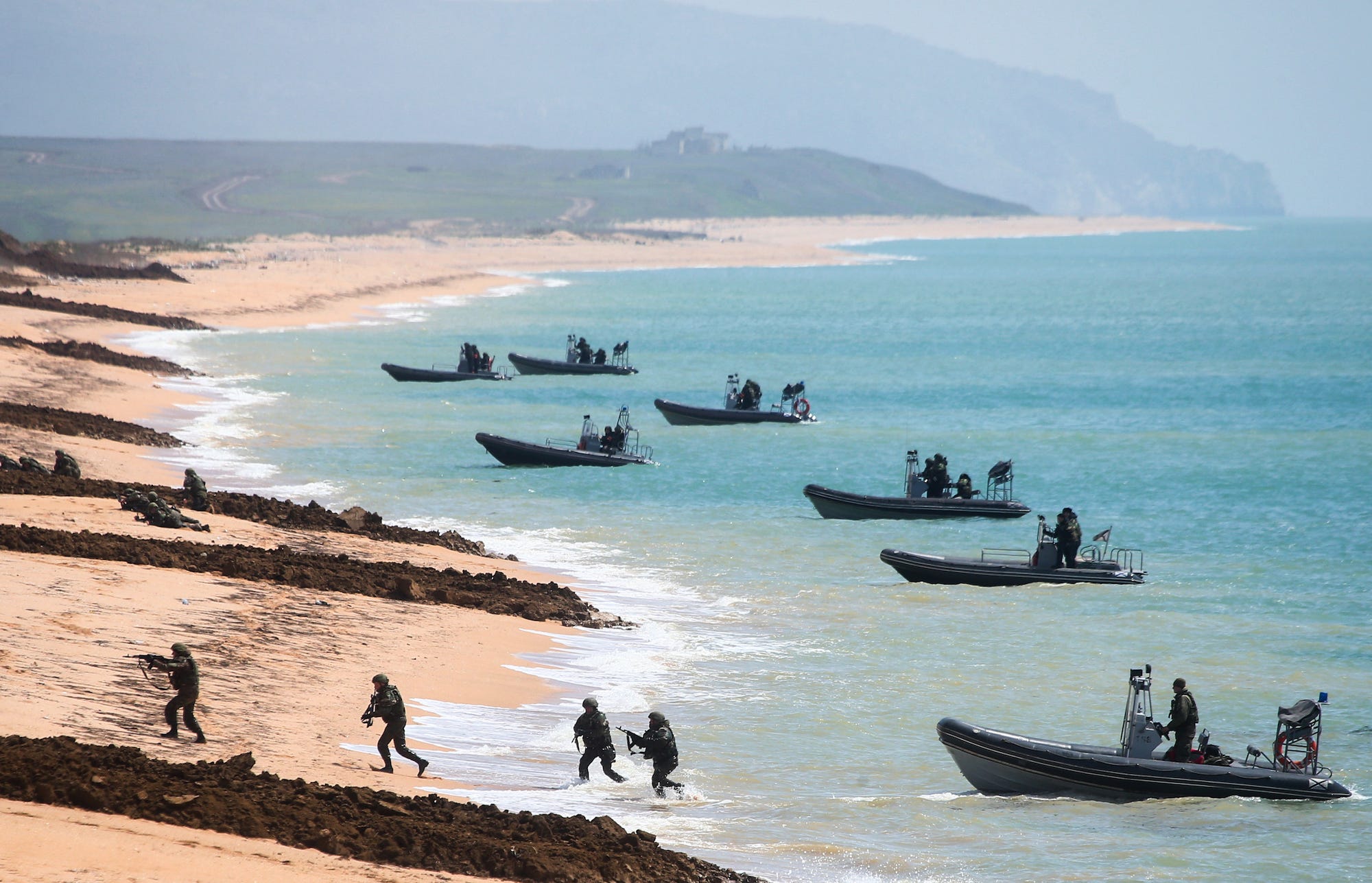
Sergei MalgavkoTASS via Getty Images
Ukraine still faces plenty of challenges. Its air force, for instance, has not received new aircraft in over two decades, and its top general has warned that most of its warplanes may be unusable in the next decade.
Ukraine is also reforming Ukroboronprom to both fight corruption and make the defense industry more efficient and attractive to Western investors and partners.
But the greatest challenge is the fact that Russia, with more resources and a much larger population, is just far stronger than Ukraine can ever hope to be on its own.
Russia's force of nearly 1 million activity-duty troops and 2 million reservists and its total defense spending dwarf those of Ukraine. Russia's fleets of aircraft, ground vehicles, and warships vastly outnumber and overpower those of its smaller neighbor as well.
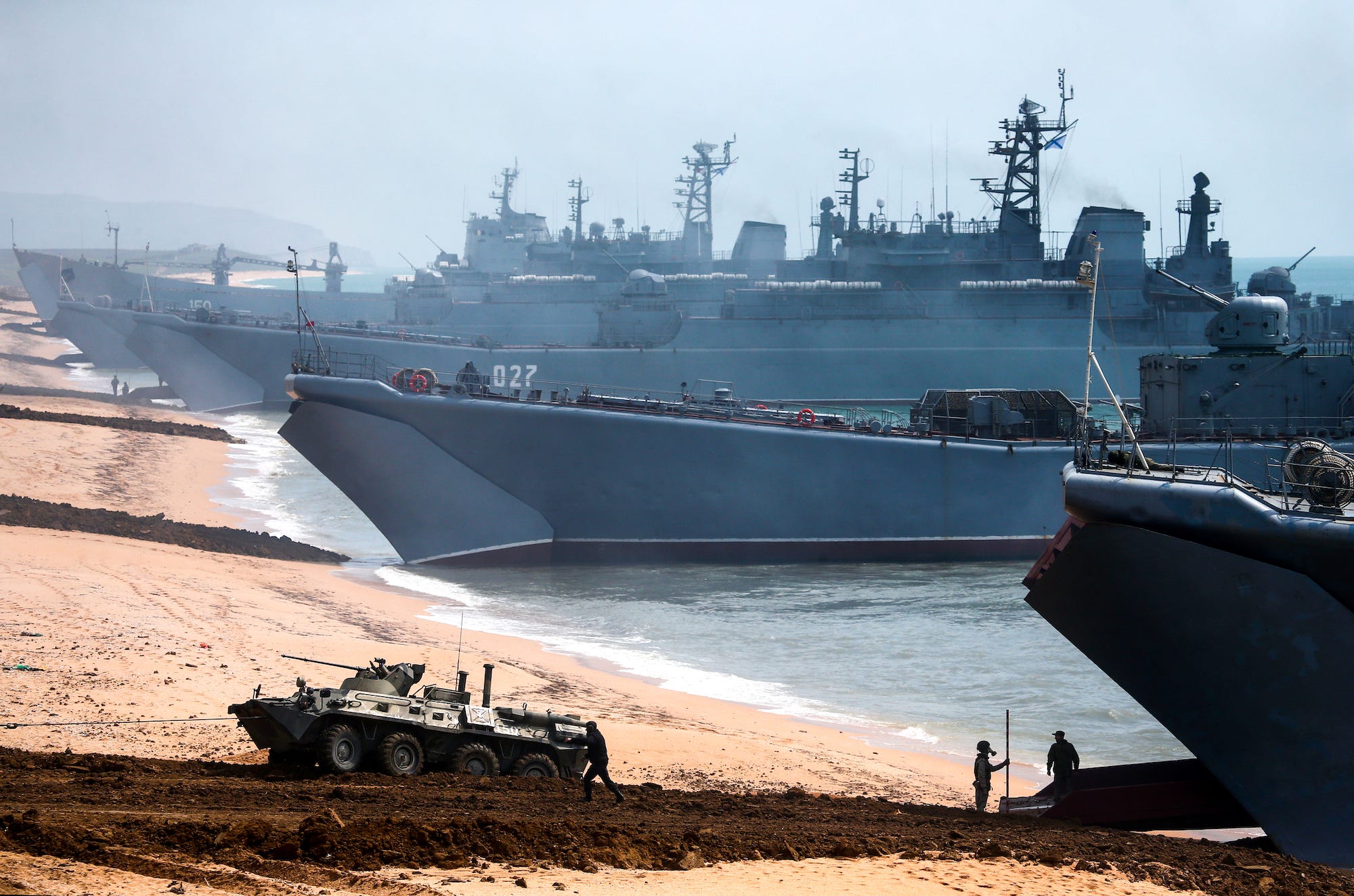
Sergei MalgavkoTASS via Getty Images
Ukraine also needs to worry about how Russia will support the separatists in its territory at least as much as it does about the separatists themselves.
While Kyiv may be able to handle the separatists on its own, "at this point in the conflict it's hard to separate the separatists from the Russians," Radin said, adding that Moscow "can increase that support to counteract whatever force Ukraine can bring to bear."
"It's ultimately, from the Ukrainian perspective, about what level of support Russia is going to provide," Radin said.
Ukraine, with support from Western countries, has to focus its investments on military capabilities that in a larger conflict will force the separatists and the Russians to expend large amounts of men and resources.
"The question comes down to how is the Ukrainian army able to increase the cost for Russia of escalations, and how are they able to do that on their own?" Radin said.
